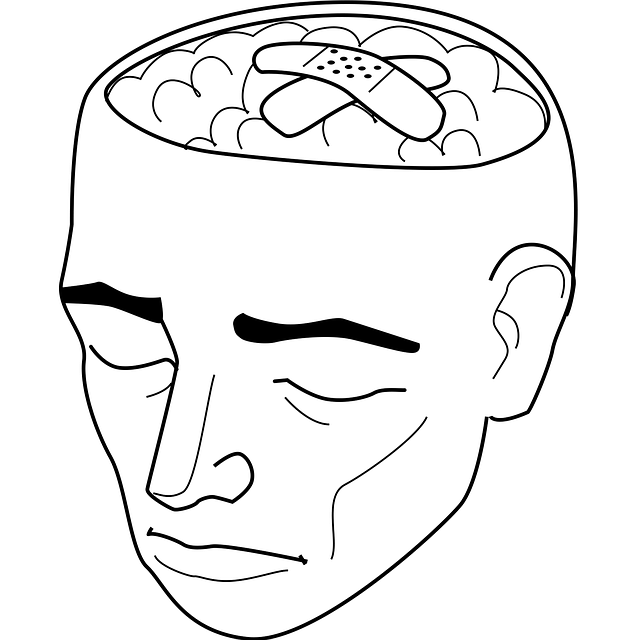Therapy is vital for adults with Autism Spectrum Disorder (ASD) to manage moods, cope with challenges, and reduce stress/anxiety. Tailored strategies include Cognitive Behavioral Therapy (CBT), Risk Management Planning, trauma-informed practices, and communication techniques. Beyond CBT, approaches like compassion cultivation, self-compassion training, social skills development, and personalized stress management enhance emotional regulation, resilience, and well-being for ASD adults, addressing unique mood management needs.
Mood regulation is a critical aspect of well-being, especially for adults with Autism Spectrum Disorder (ASD). This article explores effective strategies to help individuals with ASD manage their moods and promote emotional stability. We delve into Cognitive Behavioral Therapy (CBT), recognized as a powerful tool for mood management, and uncover additional techniques for daily coping. By understanding the unique needs of adults with ASD, we can foster better mental health outcomes through tailored interventions.
- Understanding Mood Regulation for Adults with Autism Spectrum Disorder (ASD)
- Cognitive Behavioral Therapy (CBT): A Powerful Tool for Mood Management
- Additional Strategies and Techniques for Daily Coping
Understanding Mood Regulation for Adults with Autism Spectrum Disorder (ASD)

For adults with Autism Spectrum Disorder (ASD), understanding and managing moods is a unique challenge that requires tailored strategies. Therapy plays a pivotal role in helping individuals navigate their emotional landscape, offering them valuable tools to recognize and regulate their feelings effectively. Through structured interventions, therapy enables ASD adults to develop coping mechanisms, enhancing their ability to manage stress and anxiety, which are common contributors to mood dysregulation.
Risk Management Planning for Mental Health Professionals is an essential aspect of supporting ASD adults in this journey. By implementing trauma-informed practices and integrating communication strategies, therapists can foster a safe and supportive environment. This approach encourages clients to express their emotions openly while teaching them healthy ways to process traumatic experiences, thereby improving overall mental well-being. Trauma Support Services also prove beneficial, as many individuals with ASD may have experienced sensory or emotional sensitivities that impact their mood regulation.
Cognitive Behavioral Therapy (CBT): A Powerful Tool for Mood Management

Cognitive Behavioral Therapy (CBT) is a powerful tool for managing moods and has shown remarkable effectiveness in treating various mental health conditions, including those experienced by individuals on the Autism Spectrum Disorder (ASD). This therapy focuses on identifying and changing negative thought patterns and behaviors that contribute to emotional distress. By helping individuals challenge their distorted thoughts and replace them with more realistic and positive ones, CBT empowers people to gain better control over their emotions.
For adults with ASD, CBT can be tailored to address specific challenges related to stress management and inner strength development. It assists in reducing the impact of sensory sensitivities and social interactions that may trigger emotional overwhelm. Through structured sessions, individuals learn coping strategies to navigate through periods of heightened anxiety or depression, fostering a sense of self-awareness and resilience. Additionally, CBT contributes to Mental Illness Stigma Reduction Efforts by promoting understanding and self-acceptance, enabling individuals to advocate for their mental health needs.
Additional Strategies and Techniques for Daily Coping

For individuals on the Autism Spectrum, managing mood and coping with daily life can be a unique challenge. Beyond traditional therapy for adults with Autism Spectrum Disorder (ASD), there are numerous additional strategies that can significantly enhance emotional regulation. One promising approach is incorporating compassion cultivation practices into daily routines. This involves cultivating self-compassion, which can help individuals better understand and accept their emotions, fostering a sense of resilience.
Social Skills Training remains an integral part of mood regulation for many on the spectrum. Learning effective communication techniques and social cues enables better interaction with peers and reduces potential sources of stress. Moreover, Stress Management techniques tailored to individual needs are invaluable tools. Simple mindfulness exercises, deep breathing, or progressive muscle relaxation can help individuals de-escalate during moments of heightened anxiety or frustration.
In conclusion, managing mood swings is a vital aspect of enhancing the quality of life for individuals with Autism Spectrum Disorder (ASD). By understanding the unique challenges faced by adults with ASD, and utilizing evidence-based strategies like Cognitive Behavioral Therapy (CBT), significant progress can be made in regulating emotions. Combining CBT with additional coping techniques offers a comprehensive approach to addressing mood regulation, empowering those with ASD to navigate their emotional landscape effectively. For those seeking therapy for adults with autism spectrum disorder, these strategies provide a promising path towards improved mental well-being and overall satisfaction.









